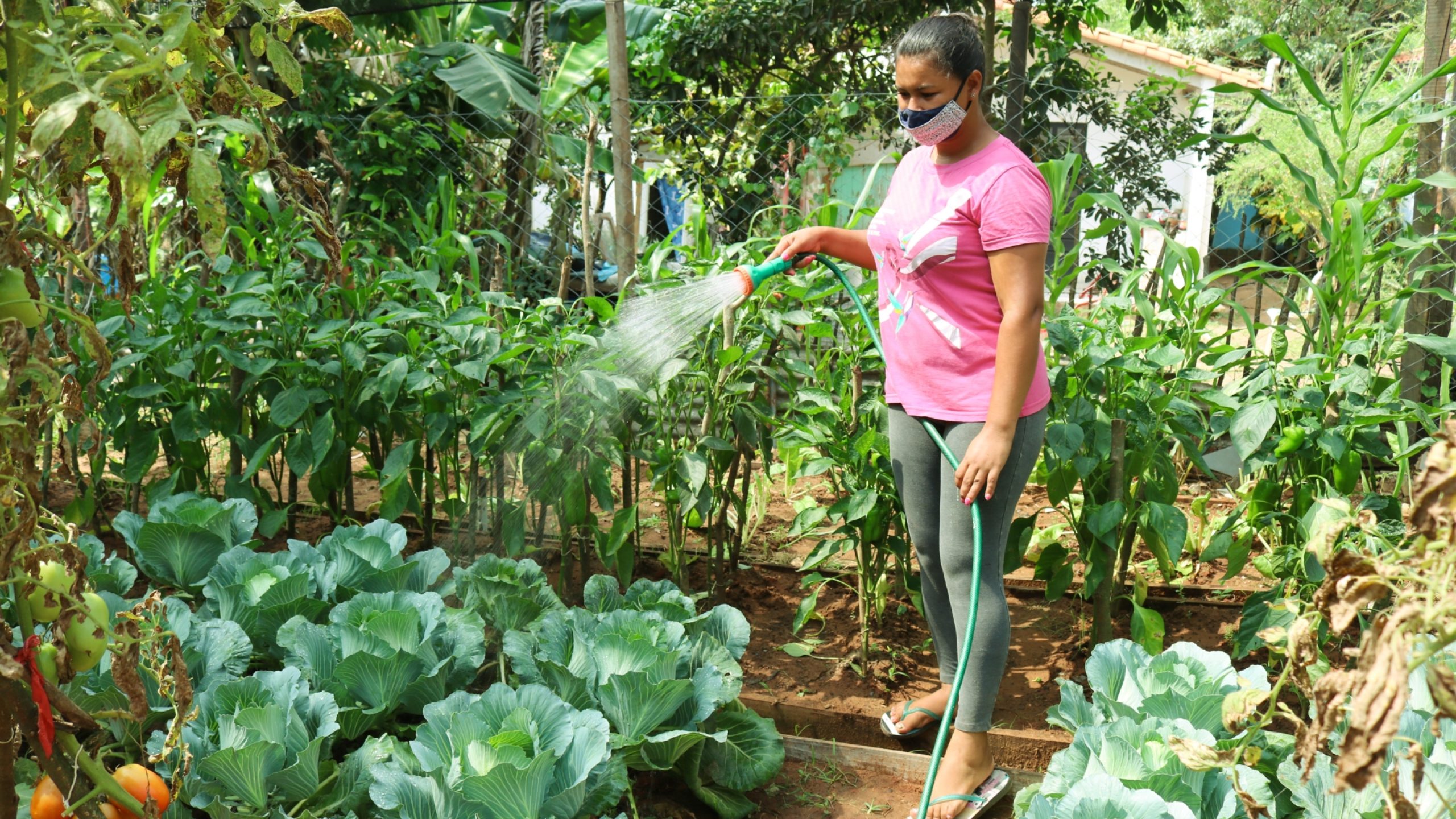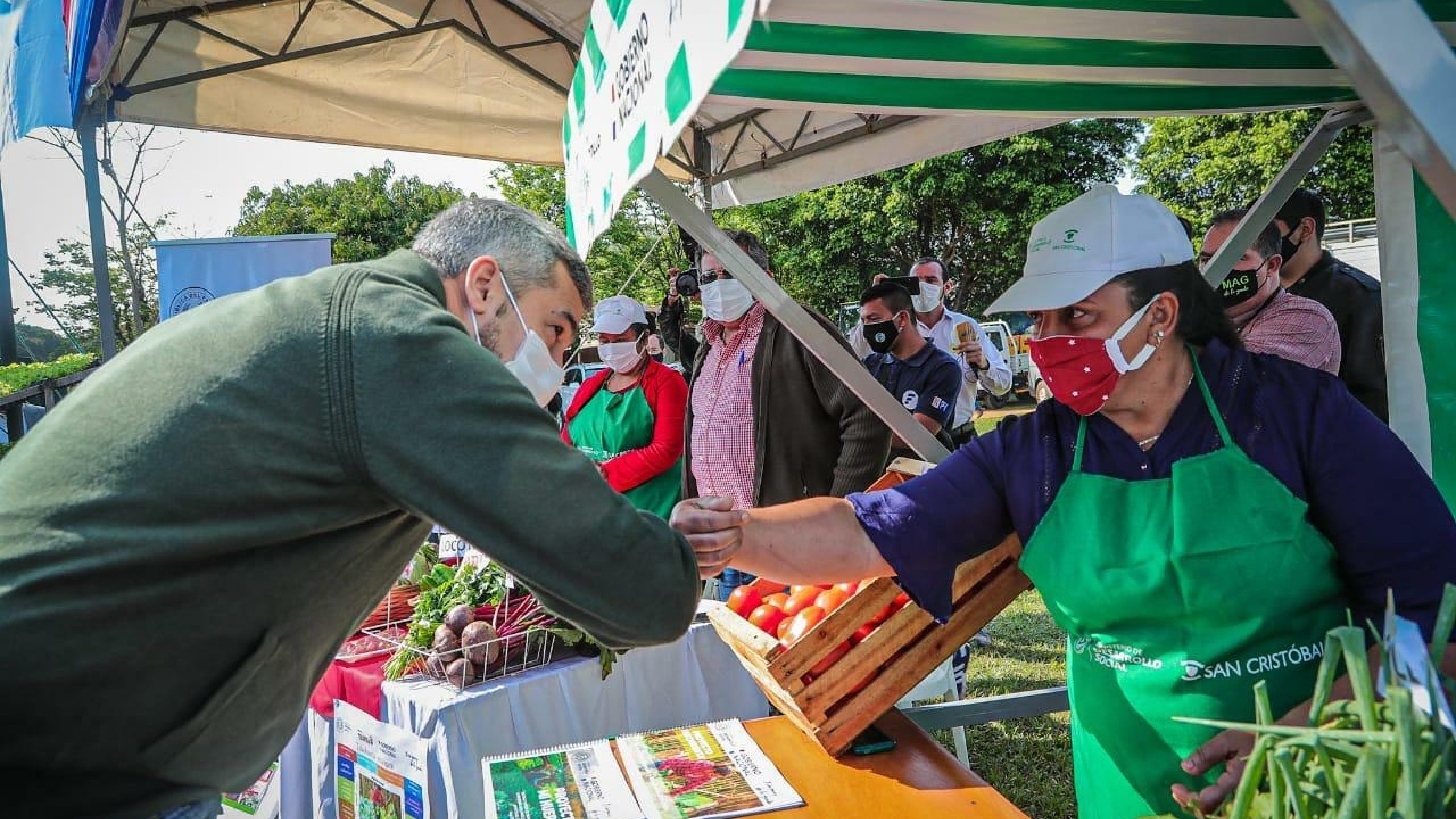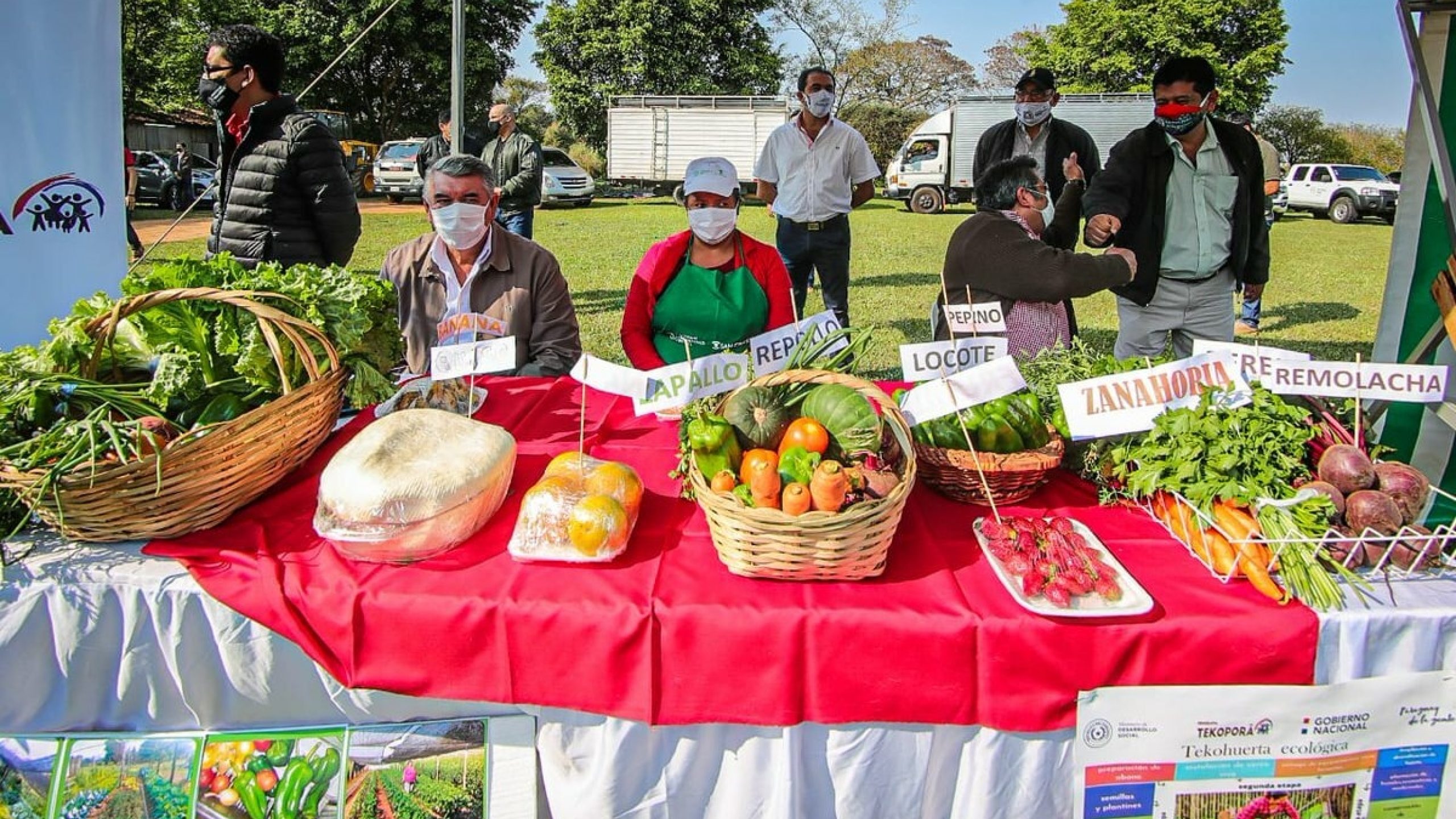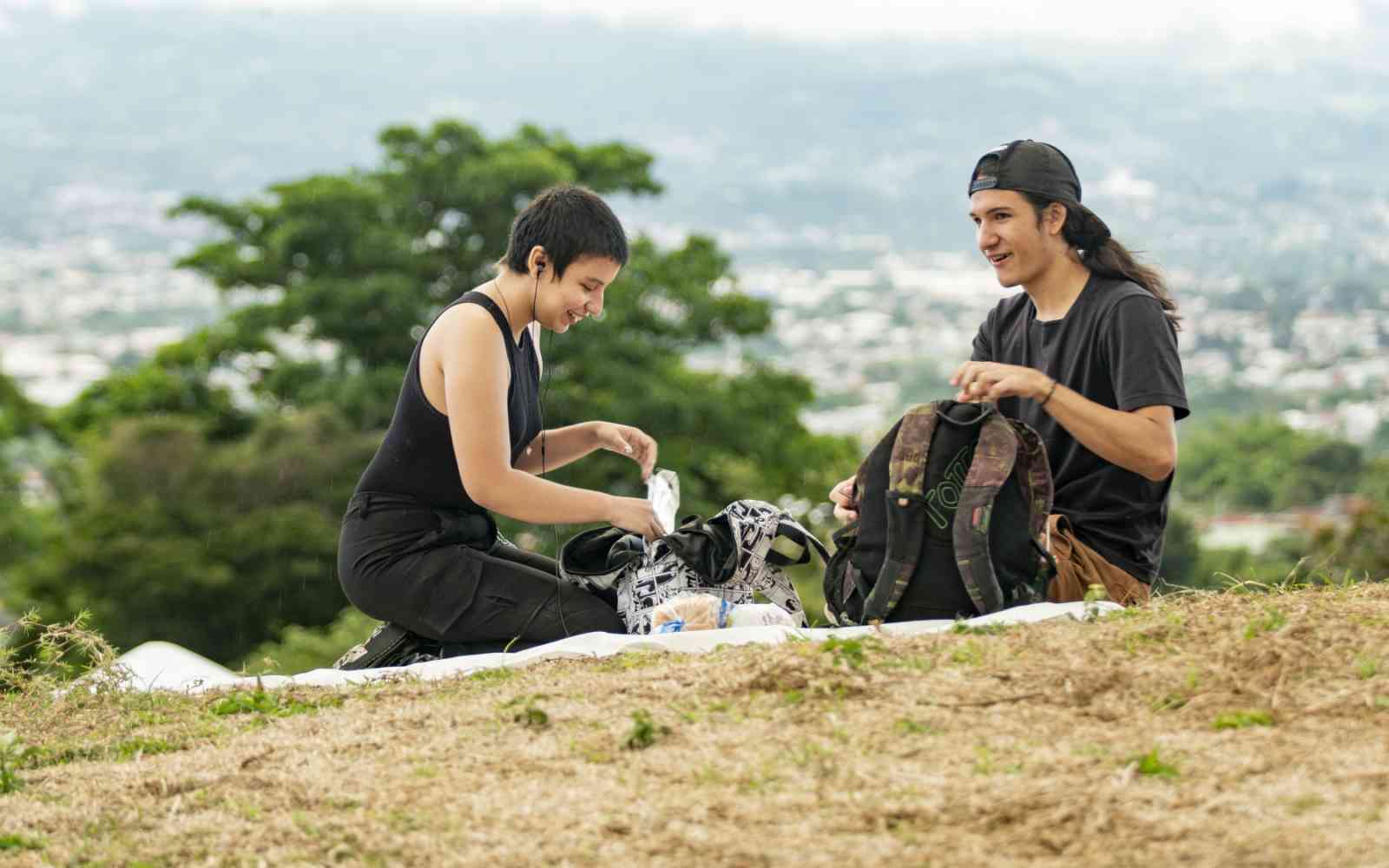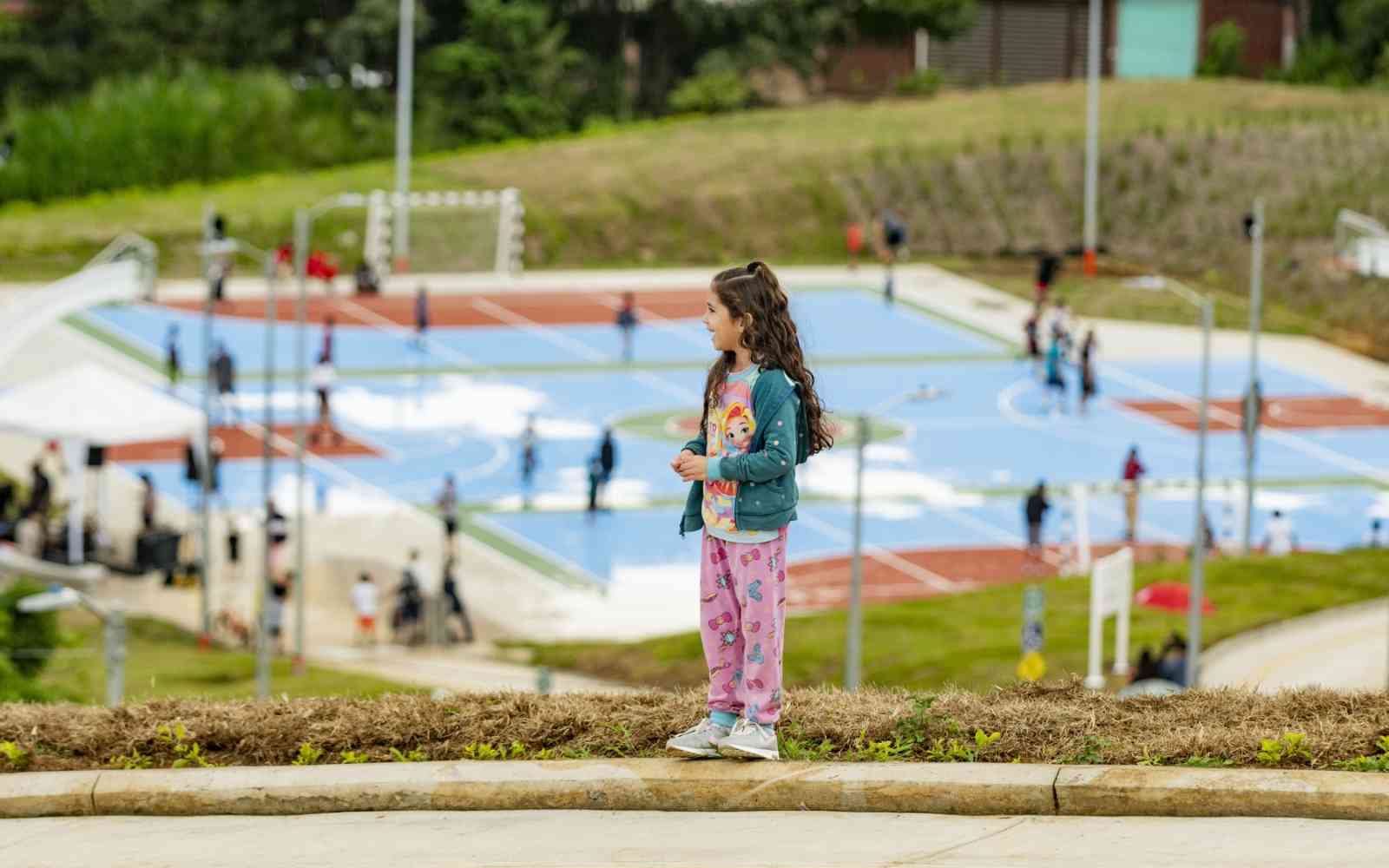The United Nations Office for Project Services (UNOPS)

Seeds for a sustainable future
Around 5,700 families in rural Paraguay are benefiting from improved food security through family vegetable gardens.
90 per cent of project beneficiaries are women – the majority of whom are considered head of household
In Paraguay, the effects of COVID-19, rising costs of living and a historic three-year-long drought have led to some of the highest poverty rates in the region. With around 70 per cent of the population dependent on agriculture as their main source of income, extreme weather events combined with the socio-economic impacts of the pandemic resulted in food scarcity and left many families lacking basic nutrition.
To overcome this, UNOPS is supporting the Ministry of Social Development to enhance food security by providing kits for family-owned vegetable gardens. With funding from ITAIPU Binacional, families are provided with essential tools to help their gardens thrive, including seeds and seedlings, fertilizer, fungicides, watering cans and shade nets.
Liz Yegros, a 27-year-old mother of one, was eager to participate in the project. With high living expenses and no income, she was looking for ways to reduce her family’s food costs while also consuming healthier foods.
Four months after she received the supplies needed to start her garden, peppers, cabbage, tomatoes and lettuce were flourishing outside her small home in the Virgen de Caacupé settlement in the city of Luque.
"I am very happy for this opportunity, I have never done anything like it. It is a new experience for me and I am very grateful," says Liz.
To encourage economic development, families sell their surplus farmed food at local markets and within their community. For Liz, this opportunity means she can continue to care for her son while earning a profit doing work she enjoys.
"I am not going to leave this job because it is very useful to me. I want to continue and dedicate myself to this permanently [...] We hardly buy vegetables anymore, we eat the ones we have in our garden.”
One year into the project, 90 per cent of the gardens were active and producing food.
Through Mi Huerta, food security is provided to families in a sustainable and ecological way. Training is provided in harmony with nature to address issues of climate change and help ensure the crops – from seedling to production – are aligned with the Sustainable Development Goals and protect the environment.

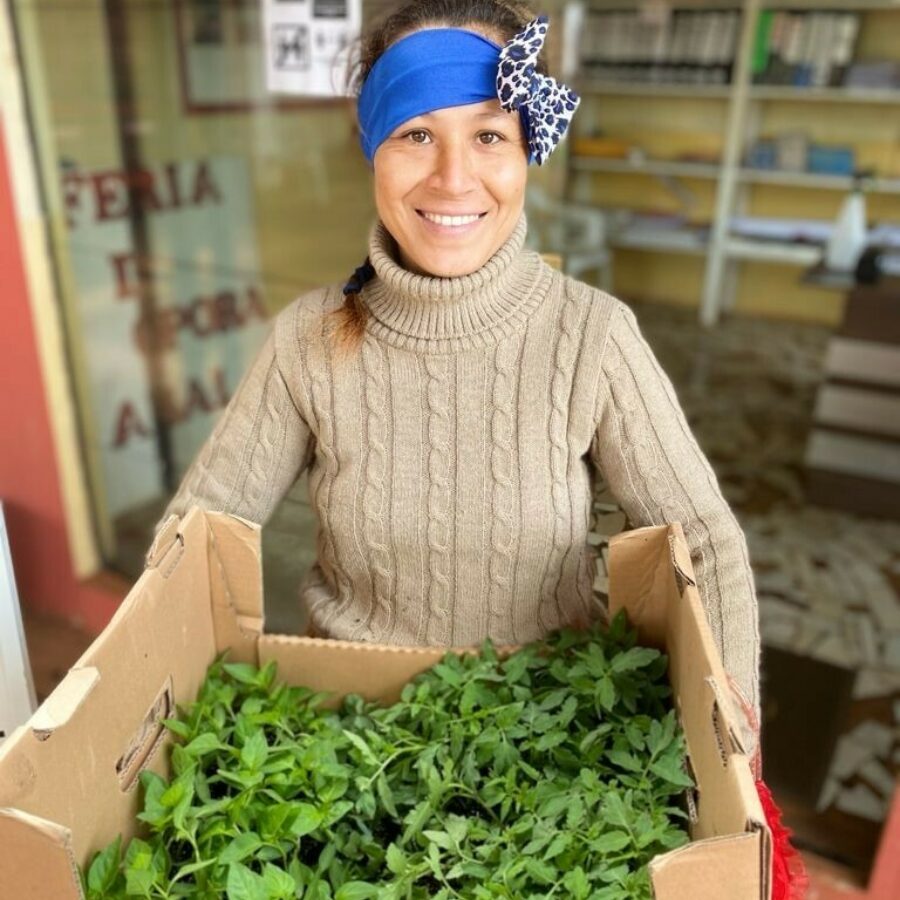
In addition to their own consumption, each family generated an average income of 900,000 Paraguayan Guaraní – or approximately $130 – per harvest by selling surplus vegetables at local fairs and in their communities
With support from the Ministry of Agriculture and Livestock, families were offered technical training and follow-up support on soil preparation, garden protection, seed germination, harvesting, marketing and preparation for commercial sale.
Financial training was also provided so families could learn about money and credit management. To engage women, a series of educational videos were developed in Spanish and Guaraní – a local language – to facilitate knowledge sharing on gardening best practices.
“Through the project we were able to see families empowered with knowledge and skills, helping them face the day-to-day challenges of the pandemic,” said Julio Portieles, Country Manager of UNOPS in Paraguay.
“Months after the families harvested their first products, we found that many had expanded their gardens, planted new seeds and developed new products,” added Mr. Portieles.
To date, around 5,700 families living in poverty or extreme poverty have benefited from the creation of family vegetable gardens in all 14 departments of the Oriental Region.









